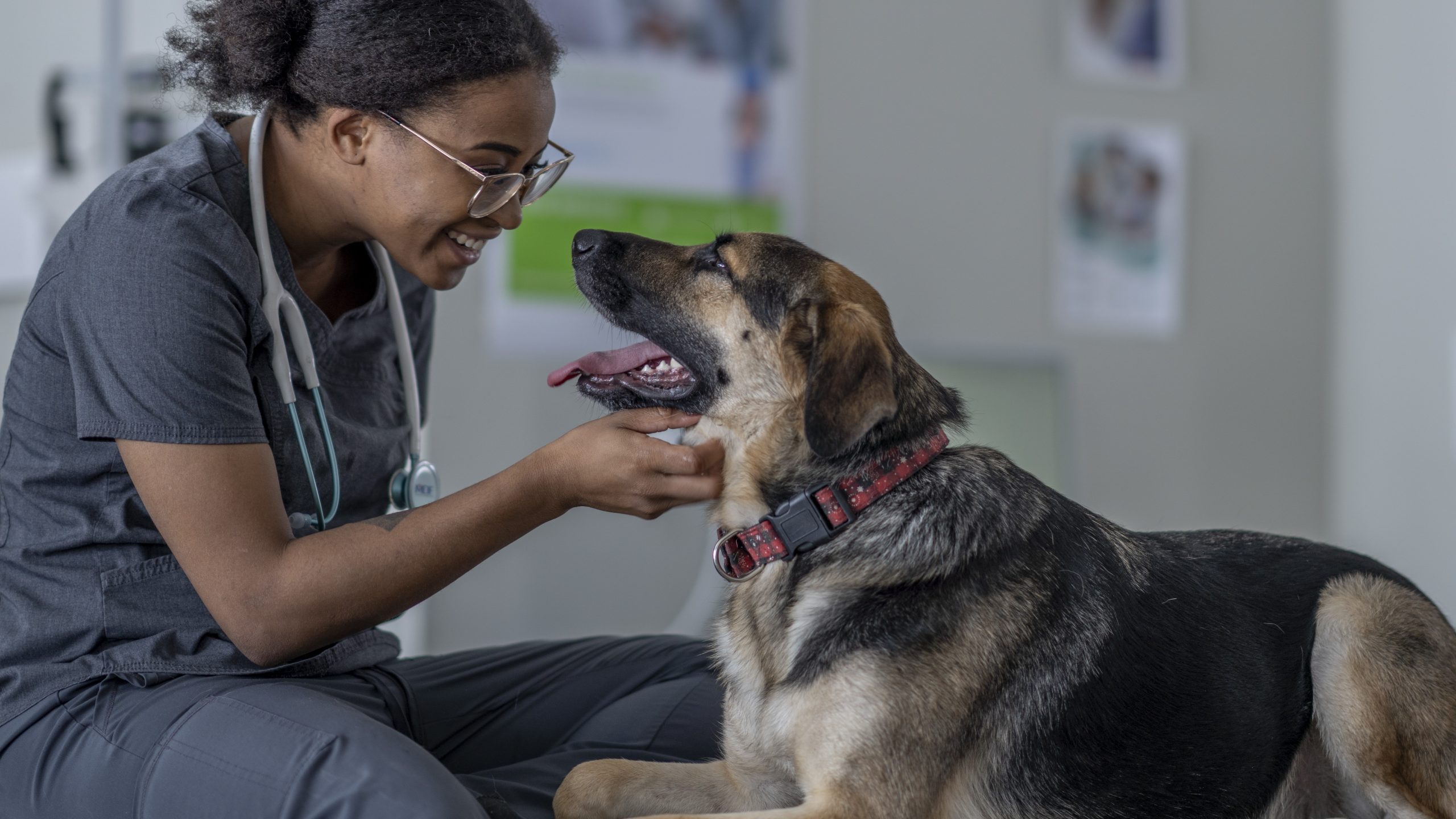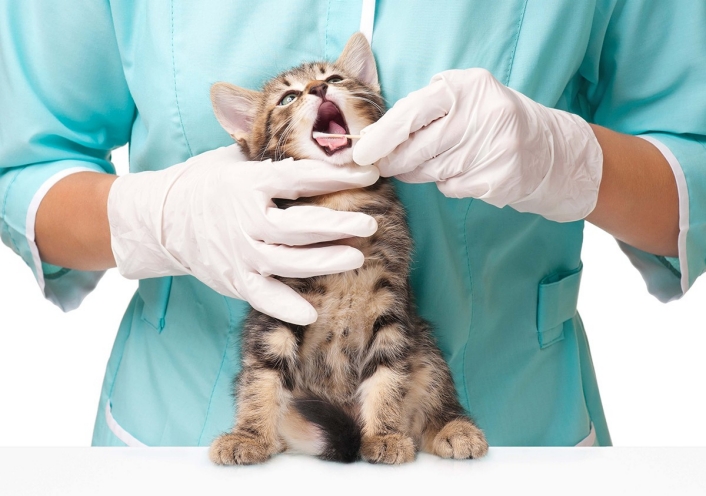Inoculation Guidelines From Your Trusted Vet
Inoculation standards offered by your relied on veterinarian play a vital role in guarding your animal's wellness and well-being. Furthermore, resolving typical misconceptions surrounding vaccinations can further improve family pet owners' self-confidence in these preventative steps.

Importance of Vaccinations
Inoculations play a crucial duty in guarding pets against a series of avoidable illness. By stimulating the immune system to identify and combat specific microorganisms, vaccines dramatically decrease the occurrence of transmittable illness that can influence an animal's health and wellness and longevity. Not just do vaccinations protect specific animals, but they additionally add to herd immunity, therefore minimizing the overall frequency of illness in the pet populace.
Timely inoculations help to minimize the spread of illness such as rabies, parvovirus, and distemper, which can have severe repercussions for both human beings and family pets. Additionally, inoculations are commonly a requirement for boarding centers, grooming solutions, and dog parks, making them vital for those that want to mingle their animals.

Core Vaccinations for Family Pets
While the specific inoculation requirements of pet dogs can differ based on private elements, core vaccinations are widely suggested to safeguard versus the most significant and typical conditions (Veterinarian Enterprise). Core vaccinations are those deemed crucial for all animals, despite their lifestyle or geographical area, as they protect versus highly infectious and possibly fatal health problems
For canines, the core injections include those for canine distemper, parvovirus, adenovirus (hepatitis), and rabies. Canine distemper is a viral condition that influences the respiratory, stomach, and worried systems. Parvovirus is known for triggering extreme intestinal illness, especially in young puppies. Adenovirus can result in liver condition, while rabies is a zoonotic disease that presents a threat to both human beings and pets.
In pet cats, core vaccines include feline panleukopenia, feline calicivirus, feline herpesvirus (rhinotracheitis), and rabies. Feline panleukopenia is a very transmittable viral condition that influences the immune system and intestines. Calicivirus and herpesvirus are significant factors to top breathing infections in felines, while rabies stays a crucial issue for public wellness.
Speak with your veterinarian to guarantee your pet dogs obtain their core vaccinations on time.
Non-Core Vaccines Explained
Non-core vaccines are customized to attend to specific risks connected with a pet dog's way of living, setting, and direct exposure to particular conditions. Unlike core injections, which are widely advised for all pets, non-core vaccines are thought about based upon specific circumstances. These injections are especially crucial for animals that might experience unique virus because of their geographical location, traveling practices, or tasks.
Instances of non-core vaccinations include those for Bordetella bronchiseptica, which is connected to kennel cough, and Lyme disease, triggered by ticks. Pet dogs that often connect with other animals, such as those in boarding centers, canine parks, or brushing atmospheres, may profit from Bordetella vaccination. Likewise, if you stay see it here in a location where Lyme condition prevails, immunizing versus this disease can be a prudent selection for outdoor-loving canines.
Other non-core injections might include those for leptospirosis, canine flu, and feline leukemia, depending upon the details risk aspects existing. It is important to have an extensive conversation with your vet about your pet dog's way of life and the possible demand for these vaccines, making sure a customized inoculation approach that best safeguards your hairy pal.
Inoculation Set Up Overview

As pets develop, it is essential to comply with the recommended booster vaccinations. Pet Health Checkup. For adult animals, core injections are normally given every one to 3 years, relying on the details vaccine and neighborhood regulations. Non-core vaccines may be recommended based upon lifestyle elements and regional disease occurrence, requiring a tailored approach
Regular veterinary check-ups are essential for upgrading inoculation timetables. Your vet can give assistance on one of the most proper booster shots for your family pet, considering age, health standing, and environmental risks. By remaining aggressive and notified, animal owners can guarantee their hairy friends get timely and efficient inoculations, therefore guarding their wellness and wellness throughout their lives.
Common Myths Concerning Vaccinations
Misconceptions about pet dog vaccinations can result in confusion and hesitation among pet proprietors pertaining to the immunization process. One widespread misconception is that injections are unnecessary for interior animals. While it holds true that interior family pets face reduced dangers, they are not completely unsusceptible to illness, as pathogens can be presented with numerous ways, including human apparel and various other animals.
Another misunderstanding is that vaccinations can trigger the diseases they intend to stop. In fact, a lot of vaccines have inactivated or attenuated virus, which can not trigger disease in healthy and balanced animals. Some pet proprietors likewise believe that their family pets ought to not be immunized if they are already healthy; however, inoculations are a proactive procedure that helps protect against the beginning of health problem.
In addition, numerous pet proprietors fear that vaccinations will bring about lasting health problems. While negative effects can happen, they are usually light and temporary. The benefits of vaccination-- shielding pets from potentially lethal diseases-- far exceed the dangers. Recognizing these usual misconceptions is essential for accountable family pet possession and making certain the health and safety of your fuzzy buddies. Constantly consult your vet for precise details customized to your pet dog's specific needs.
Final Thought
In recap, adherence to vaccination standards is crucial for guaranteeing the health and wellness and longevity of pets. Core vaccines supply necessary security against serious diseases, while non-core vaccines resolve details risks based upon specific lifestyles. Developing a comprehensive vaccination schedule, in conjunction with normal veterinary check-ups, facilitates optimum health and wellness management. Resolving typical myths bordering vaccinations further strengthens the significance of informed decision-making in Related Site family pet care. Going Here Ultimately, a positive approach to inoculations is important for maintaining pet dog wellness.
Not just do vaccinations shield individual pets, but they additionally contribute to herd resistance, consequently decreasing the overall occurrence of conditions in the animal populace.
Misconceptions concerning animal inoculations can lead to confusion and unwillingness amongst animal proprietors relating to the immunization procedure. While it's true that indoor pets deal with reduced risks, they are not entirely immune to illness, as pathogens can be presented with various ways, consisting of human apparel and various other animals.
Some animal proprietors additionally believe that their animals must not be immunized if they are currently healthy and balanced; nonetheless, vaccinations are a proactive step that assists stop the start of illness.
The benefits of vaccination-- securing animals from possibly deadly conditions-- far exceed the risks.